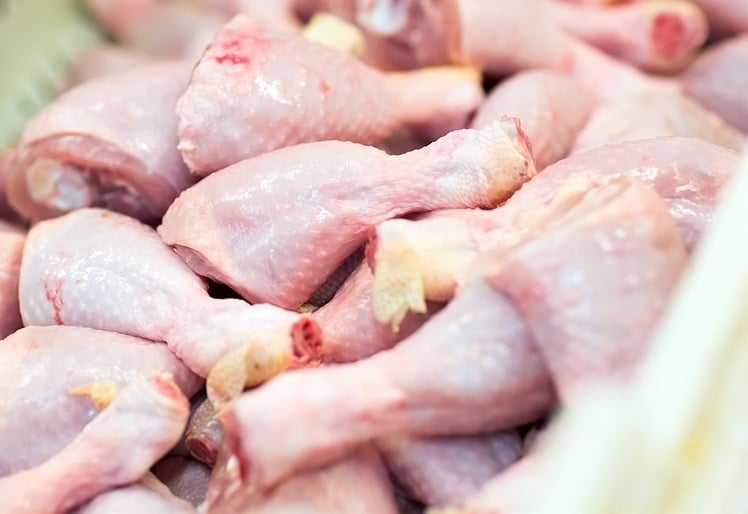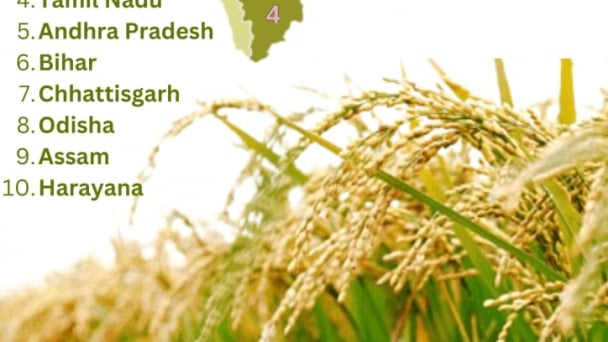June 20, 2025 | 21:36 GMT +7
June 20, 2025 | 21:36 GMT +7
Hotline: 0913.378.918
June 20, 2025 | 21:36 GMT +7
Hotline: 0913.378.918

Cheap imported chicken puts great pressure on domestic poultry production, which is facing many difficulties in output. Photo: HT.
Specifically, in 2018, Vietnam imported approximately 217,000 tons of chicken meat, increased to nearly 300,000 tons by 2019-2020, and decreased to 246,000 tons by 2022, accounting for about 21% of the total domestic consumption of chicken meat. Accordingly, on average, Vietnam consumes over 674 tons of imported chicken every day.
Particularly in the first 8 months of 2023, enterprises have imported more than 100,000 tons of chicken meat of all kinds. That is not counting the number of laying hens smuggled across the border into the Vietnamese market that have not been detected or arrested.
Worth mentioning, according to Mr. Nguyen Thanh Son, the Chairman of the Vietnam Poultry Association, our country now also imports waste layer products, chicken skin, chicken wings, chicken legs... typically, discarded whole laying hens, decapitated and chopped off, are imported from Korea by enterprises at very low prices. As a consequence, these cheap imported chickens are really putting great pressure on domestic poultry production, which is facing many difficulties in terms of output.
"Compared with countries with developed livestock production, the technical regulations on importing livestock products of our country are still unclear and lack of strictness. For example, since 2014, the use of Ractopamine, Cysteamine as a growth stimulant, creating lean for livestock has been banned in 160 countries around the world, including in our country because of the risk of causing cancer to users." VIPA Chairman, Mr. Nguyen Thanh Son emphasized.
According to Mr. Nguyen Thanh Son, the paradox is that every year, Vietnam still imports a large amount of pork, beef and chicken from some countries that still allow the use of these two substances for livestock and poultry. Meanwhile, in order to export livestock products, Vietnamese enterprises have to face a lot of strict technical barriers from importing countries, making Vietnam's livestock products disadvantaged in the domestic market.
The President of VIPA suggested that, in order to create a healthy and equal competition environment for domestic businesses and breeders, especially without creating a risk of adversely affecting consumers' health, the Government should promptly promulgating documents banning the import of meat products from countries using growth stimulants Ractopamine, Cysteamine.
At the same time, relevant ministries and branches should immediately implement non-tariff measures to protect domestic production and consumers' health. To soon build technical barriers in a reasonable manner and in line with international practices, which can refer to the experience of Thailand and some countries in the region in order to limit the trade deficit of poultry and poultry products as in the past time.
Translated by Bao Ngoc

(VAN) Last week, the U.S. Department of Agriculture (USDA) released its June World Agricultural Supply and Demand Estimates (WASDE), raising projections for both Indian rice production and U.S. rice imports for the 2025/2026 marketing year.
/2025/06/17/2344-1-131758_261.jpg)
(VAN) Amid tariff risks and growing trade barriers in the U.S. market, Australia is emerging as a promising destination to sustain the growth momentum of Vietnam's shrimp exports.
/2025/06/17/2013-1-nongnghiep-112009.jpg)
(VAN) This notable growth trend reflects the global taste for fresh, nutritious fruits and the expanding use of lychees across various sectors.

(VAN) The political and cultural insulation of Japan’s beloved grain is falling apart, and experts warn the country’s relationship with the staple will have to adapt.

(VAN) Noting risks, report examines impacts of avian influenza, changing trade patterns since 2022, fish fraud, and shipping industry’s net-zero goals.

(VAN) Mr. Tran Quang Bao, General Director of the Forestry and Forest Protection Department, met and worked with the International Wood Products Association to promote cooperation in the field of timber trade.

(VAN) China's outbound shipments of rare earths in May jumped 23% on the month to their highest in a year, though Beijing's export curbs on some of the critical minerals halted some overseas sales.